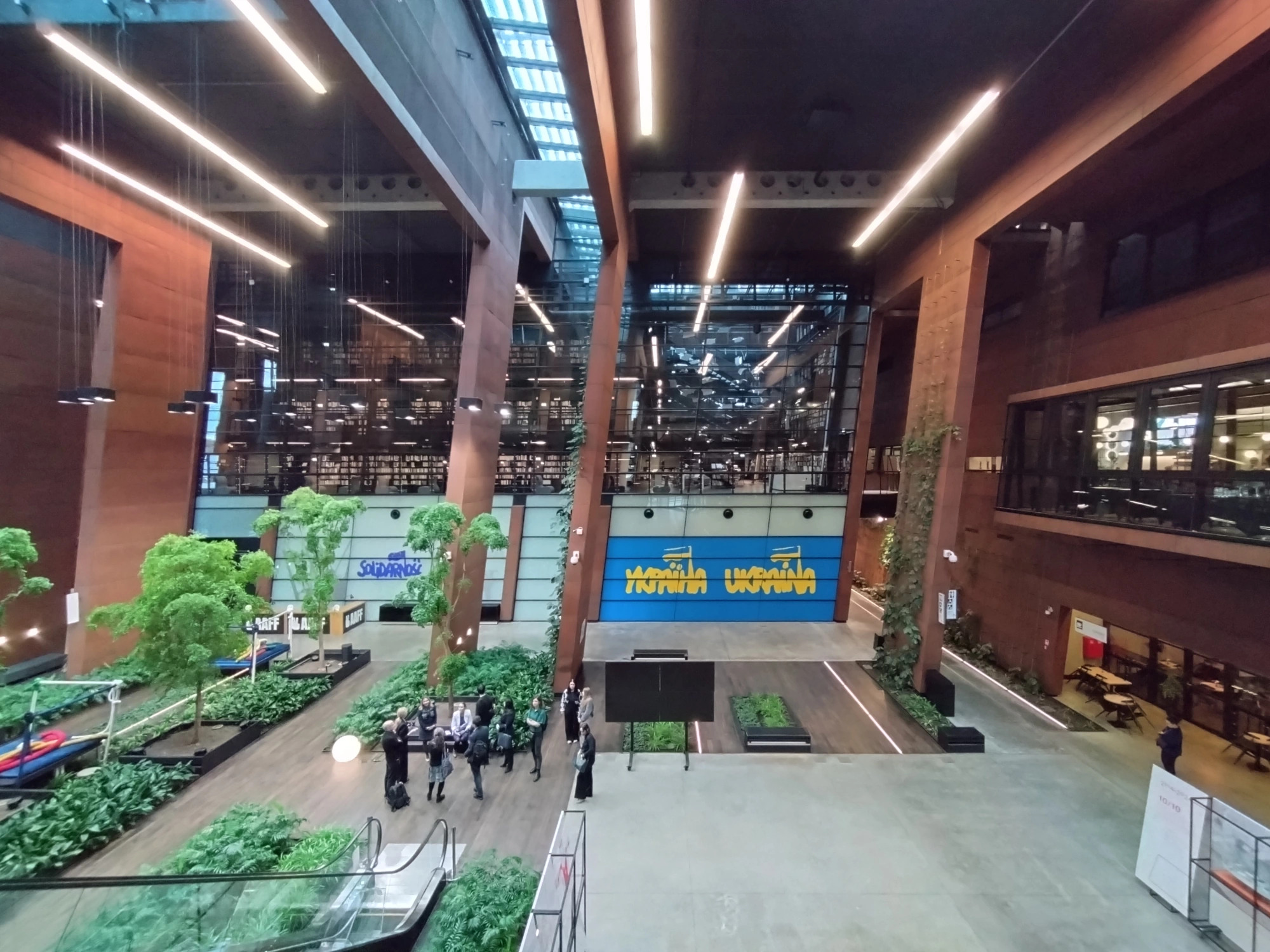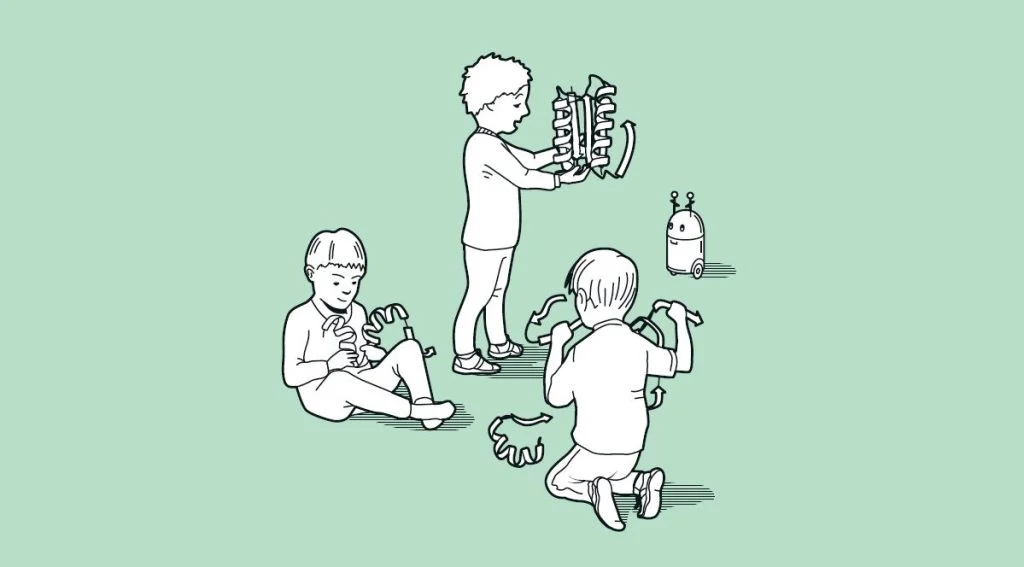Project of ribosome abiogenesis funded
published 2024-12-07
We are delighted to announce that our research proposal entitled The Role of Peptides in the Emergence of Primordial Ribosomes, submitted to the Czech Science Foundation, has been approved for funding. Over the next three years, we will be uncovering the molecular secrets of life’s beginnings, focusing on how ribosomes – the molecular machines central to protein synthesis – may have emerged from the primordial soup.
The project will build upon our wonderful collaborative with Klára Hlouchová's research group at Charles University in Prague.

Student conference at UCT Prague
published 2024-12-02
Four members of our team participated in the student conference organized by UCT Prague. The conference offered a fresh perspective on the scientific projects investigated by research teams accross the university.
At the Department of Physical Chemistry:
- Aneta achieved 2nd place with her talk on the dynamics of peptide deformylases.
- Martin earned 3rd place with his presentation on coarse-grained simulations of ancestral RNAs.
- Rudolf presented his simulation model of the mitochondrial ribosome.
- Tom introduced his project on bacterial release factors.
Standing out in front of a committee takes courage – congratulations to all participants for their efforts!
New publication about ribosome exit tunnel
published 2024-11-06
The protein synthesis on ribosomes is the main scientific topic of our group. We run molecular dynamics simulations to understand the details of ribosome action. One of our favourite ribosome parts is the exit tunnel, through which all nascent polypeptides leave the catalytic center. In the recent publication, entitled "Three stages of nascent protein translocation through the ribosome exit tunnel" Michal and three PhD students review this rather overlooked aspect of the protein elongation process.
Full text: WIREs RNA, 2024, 15:e1873.
Preprint: arXiv

Michal joined the Reclaiming Europe inaugural conference
published 2024-10-10
The war in Ukraine underscores the urgent need for a reimagined Europe that embraces a more inclusive and forward-thinking cultural identity particularly by addressing the neglect of diverse perspectives from regions often mislabeled as "Eastern Europe." Academia should be a key driver of this transformation due to its openness, critical inquiry, and potential to inspire innovative solutions.
Berlin-Brandenburg Academy of Sciences and Humanities (BBAW) has initiated a platform called "Young Network TransEurope" (YNT) and invited yound scholars, especially from underrepresented regions, to take action. The manifesto Reclaiming Europe is the cornerstone of teh platform.
Michal was invited to the inaugural conference held in Gdansk, Poland in October 13–15, 2024, to help shaping the newly created body from outside, as a YNT non-member. In round-table discussions and short speeches, he presented his ideas about the role of the academic environment on the international collaboration.

Nobel prize in chemistry for computations of proteins
published 2024-10-10
Michal's opinion on this years Nobel prizes, as published on the UCT Prague website
The 2024 Nobel Prizes in Chemistry were awarded for two discoveries that are related, though they occurred in different contexts. David Baker from the University of Washington, USA, received the prize for the rational design and synthesis of proteins. His team's efforts spanned over twenty years, during which they worked to design new types of proteins. The second part of the Nobel Prize, awarded to Demis Hassabis and John M. Jumper from the company DeepMind, was given for the computational tool AlphaFold, which not only facilitated protein design but also fundamentally changed how scientists today think about protein structure.

© Johan Jarnestad/The Royal Swedish Academy of Sciences
Protoribosome coacervation study published
published 2024-10-05
After nearly two years of simulations and experiments, our collaborative efforts have been published in Nucleic Acids Research. The team, led by Dr. Klára Hlouchová from Charles University in Prague, investigated the effects of peptides on the coacervation of protoribosomal RNA (prRNA). Our key finding is that peptides stabilize prRNA and help protect it from degradation by UV light and RNases. This has significant implications for understanding abiogenesis and the biophysical optimization of the protein synthesis apparatus.
Our work on this topic is far from over. We are continuing our research on ancestral RNAs to uncover the mechanisms that led to the emergence of the modern ribosome.
Full text: Nucleic Acids Research, 2024, gkae823.
Preprint: bioRxiv
Press release: Faculty of Science,
Charles University in Prague

Four members of our group just graduated
published 2024-06-30
We are pleased to announce that four members of our group have successfully completed their undergraduate studies and earned their degrees.
Aneta Hrádková studied peptide deformylases from various organisms, characterizing the dynamics of the deformylases using computer simulations. Aneta has enrolled in the Physical Chemistry program at UCT Prague, so she will continue working with us for a while longer. Petr Chalupský conducted simulations of a model peptide inside a carbon nanotube to better understand the factors driving peptide compaction. He is moving to Amsterdam, Netherlands, to join the Master's program in Computer Science. Arian Adam Ott focused on the interaction between a ribosomal protein and ribosomal RNA. He will continue his studies at UCT Prague, pursuing a Master's degree in Data Engineering in Chemistry. Finally, Petr Linhart earned his Master’s degree with a thesis on fragments of several ribosomal proteins. He has already signed a contract with Kearney, a global consulting firm.
We hope they have all gained valuable experience in handling molecular data from simulations, as well as working with data more broadly. We wish them the best of luck in their future careers. It has been a pleasure working with you all!
Petr Chalupský awarded by the Bakala Foundation
published 2024-06-18
We are pleased to announce that our group member, Petr Chalupský, has been awarded a scholarship by the Bakala Foundation. This scholarship will enable him to enroll in the computer science program at the University of Amsterdam. The Bakala Foundation has long supported students aiming for top universities worldwide. Petr succeeded in a competition against more than 160 students. Congratulations and best wishes to him in the Netherlands!

foto: Bakala Foundation
Conference on the academic culture
published 2024-06-16
On Wednesday, June 13, Czexpats in Science organized a conference titled "Through Academic Culture to Scientific Excellence." Over 80 researchers, research managers, and policymakers gathered to discuss the role of a positive working environment, trust, publication ethics, and interpersonal relationships in achieving groundbreaking discoveries. The keynote talks were delivered by Maria Leptin, President of the European Research Council; Kateřina Rohlenová, a cancer biologist from the Institute of Microbiology, CAS; and Matthew Rampley, an art historian from Masaryk University in Brno.
Michal H. Kolář gave the opening speech and moderated the afternoon panel discussion. This conference, the first of its kind in Czechia, concluded a three-year project awarded to Michal and Czexpats in Science by the Alexander von Humboldt Foundation.

foto: Jan Havlík
New group photos
published 2024-05-13
Our group has brand new photographs. In the photo below, we are sitting on a two-story park bench to the National Library of Technology. Another photo in front of the UCT Prague is in the Team page. Many thanks to Jonáš Priškin, who managed the photo shoot.

